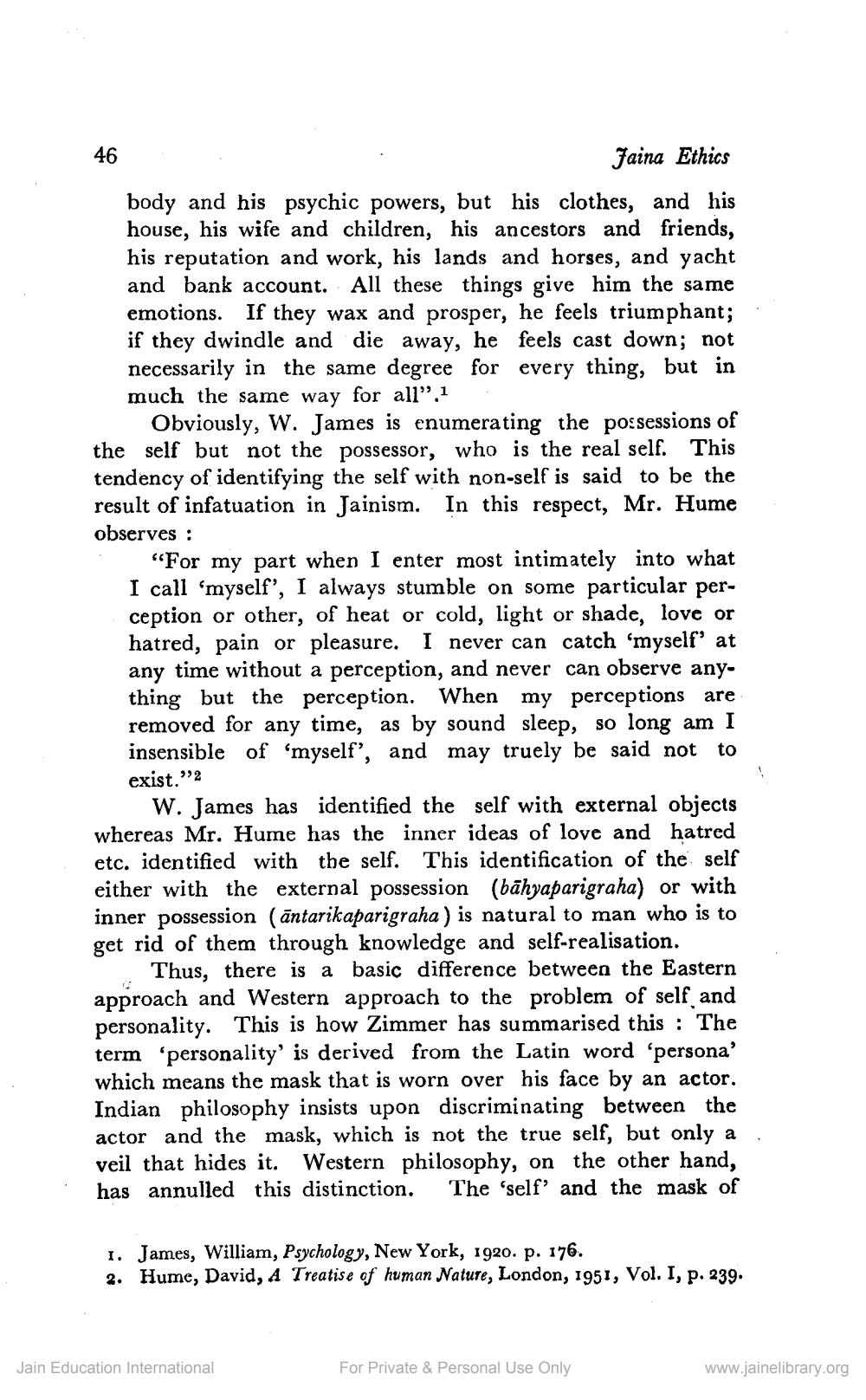________________
Jaina Ethics body and his psychic powers, but his clothes, and his house, his wife and children, his ancestors and friends, his reputation and work, his lands and horses, and yacht and bank account. All these things give him the same emotions. If they wax and prosper, he feels triumphant; if they dwindle and die away, he feels cast down; not necessarily in the same degree for every thing, but in much the same way for all”,1
Obviously, W. James is enumerating the possessions of the self but not the possessor, who is the real self. This tendency of identifying the self with non-self is said to be the result of infatuation in Jainism. In this respect, Mr. Hume observes :
“For my part when I enter most intimately into what I call ‘myself', I always stumble on some particular perception or other, of heat or cold, light or shade, love or hatred, pain or pleasure. I never can catch 'myself' at any time without a perception, and never can observe anything but the perception. When my perceptions are removed for any time, as by sound sleep, so long am I insensible of 'myself', and may truely be said not to exist."
W. James has identified the self with external objects whereas Mr. Hume has the inner ideas of love and hatred etc. identified with the self. This identification of the self either with the external possession (bāhyaparigraha) or with inner possession (āntarikaparigraha ) is natural to man who is to get rid of them through knowledge and self-realisation.
Thus, there is a basic difference between the Eastern approach and Western approach to the problem of self and personality. This is how Zimmer has summarised this : The term “personality' is derived from the Latin word 'persona' which means the mask that is worn over his face by an actor. Indian philosophy insists upon discriminating between the actor and the mask, which is not the true self, but only a veil that hides it. Western philosophy, on the other hand, has annulled this distinction. The 'self' and the mask of
1. James, William, Psychology, New York, 1920. p. 176. 2. Hume, David, A Treatise of human Nature, London, 1951, Vol. I, p. 239.
Jain Education International
For Private & Personal Use Only
www.jainelibrary.org




